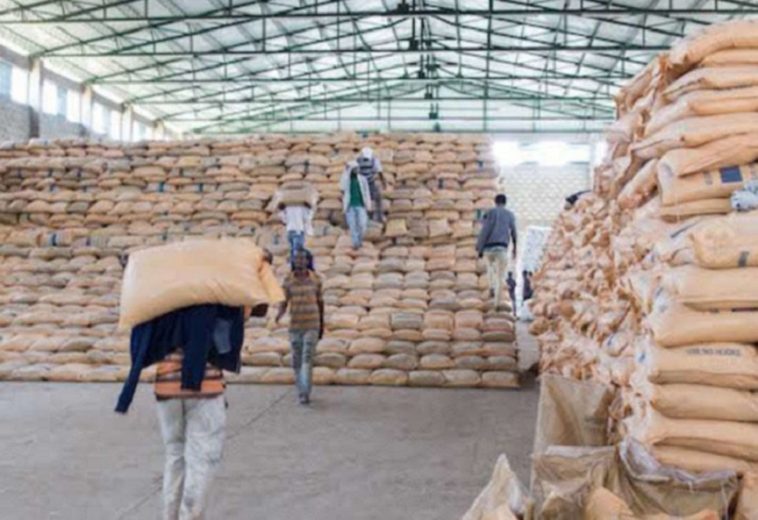Global conflicts have long been catalysts for economic upheaval, with emerging markets often bearing the brunt of such disruptions. The intricate relationship between geopolitical tensions and commodity prices significantly influences the economic stability of these nations.
The Nexus Between Global Conflicts and Commodity Prices
Geopolitical tensions, particularly in resource-rich regions, can lead to substantial fluctuations in commodity prices. For instance, the World Bank’s Commodity Markets Outlook from October 2024 highlighted that global commodity prices are projected to decline to a five-year low in 2025, despite potential conflicts in the Middle East. This anticipated drop is attributed to an oil surplus that may mitigate the price effects of regional conflicts.
Historically, conflicts such as the Russia-Ukraine war have caused significant spikes in commodity prices. Data from Statista indicates that global wheat prices surged by over 60% between February 24 and June 1, 2022, compared to January 2022 averages, due to the war’s impact on two major wheat exporters.
Impact on Emerging Markets
Emerging markets, often reliant on commodity exports, are particularly vulnerable to these price volatilities. Fluctuating commodity prices can lead to economic instability, affecting growth prospects and fiscal health. The International Monetary Fund (IMF) has noted that surges in export prices, triggered by commodity price shocks, can boost domestic GDP in emerging markets. However, these benefits are often short-lived and can be offset by subsequent price declines.
Moreover, the World Bank’s April 2024 Commodity Markets Outlook warned that a major escalation in Middle East conflicts could stoke global inflation, further complicating economic conditions for emerging markets.
Case Studies of Impacts on Emerging Economies
1. Nigeria: Oil Dependency Amidst Global Turmoil
Nigeria, Africa’s largest oil producer, exemplifies how global conflicts can destabilise commodity-reliant economies. With crude oil accounting for over 90% of its export revenues, any disruption in global oil markets significantly affects its fiscal health. For instance, during the 2022 Russia-Ukraine war, Brent crude prices surged, temporarily boosting Nigeria’s revenue. However, inefficiencies in domestic refining and a heavy reliance on imports meant that the benefits were short-lived. As global oil prices are projected to decline in 2025, Nigeria’s fiscal vulnerabilities may be further exposed, emphasising the need for diversification.
2. Brazil: Agricultural Exports and Supply Chain Disruptions
Brazil, one of the world’s largest exporters of soybeans, sugar, and coffee, has experienced notable effects of geopolitical conflicts on its agricultural exports. During the Russia-Ukraine war, disruptions to the global fertiliser supply chain, heavily reliant on Russia, caused significant price hikes. This led to increased production costs for Brazilian farmers and reduced competitiveness in international markets. Despite benefiting from rising food prices globally, the increased cost of fertilisers cut into profit margins, demonstrating the dual-edged nature of commodity price volatility for emerging markets.
3. Indonesia: Coal and Palm Oil Price Volatility
As the world’s largest exporter of thermal coal and palm oil, Indonesia faces direct economic repercussions from global conflicts affecting energy and food prices. For example, the Russian invasion of Ukraine prompted European countries to seek alternative energy sources, boosting demand for Indonesian coal. However, such gains were tempered by policy decisions such as the temporary ban on palm oil exports to stabilise domestic cooking oil prices. These measures highlighted the delicate balance emerging markets must strike between benefiting from export revenues and maintaining domestic affordability.
4. Kazakhstan: Mineral Wealth and Geopolitical Proximity
Kazakhstan, rich in uranium and other critical minerals, has faced both opportunities and challenges during global conflicts. Rising tensions between Russia and Western nations have increased global demand for Kazakh uranium, critical for nuclear energy. However, its proximity to Russia has also led to economic spillovers, including reduced trade and investment flows. The country’s reliance on mineral exports underscores the importance of diversification to mitigate the economic impacts of global uncertainty.
Strategies for Mitigation
To navigate the complexities of global conflicts and commodity price volatility, emerging markets can adopt several strategies:
- Economic Diversification: Reducing dependence on a narrow range of commodities by developing other sectors such as manufacturing and services can provide alternative revenue streams.
- Establishing Sovereign Wealth Funds: Allocating surplus revenues during periods of high commodity prices into sovereign wealth funds can offer a financial buffer during downturns.
- Implementing Hedging Mechanisms: Utilising financial instruments to hedge against commodity price fluctuations can stabilise export revenues.
- Strengthening Regional Trade Agreements: Enhancing intra-regional trade can reduce exposure to global market volatility and foster economic resilience.
While global conflicts inevitably influence commodity prices, emerging markets can employ proactive measures to safeguard their economies. By understanding the intricate dynamics at play and implementing strategic policies, these nations can enhance their resilience against external shocks.




